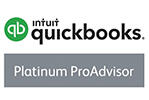New tax year brings key changes
As usual, the new tax year heralded minor changes to tax and NI rates. However, 2021/22 has also brought with it a number of other significant changes for employers and businesses. What are the most important of these?

The minimum wage rules where saw an important on 1 April 2021. Since then, the qualifying age for receiving the National Living Wage is 23, reduced from 25. Plus, the National Living Wage and National Minimum Wage both increased from the same date. Details of the new rates can be found here.
The long-delayed changes to the off-payroll (IR35) rules took affect on 6 April. Individuals who provide their services through an intermediary, e.g. a company or partnership, in which they own an interest are no longer be responsible for deciding if IR35 applies where their client is a medium-sized or large organisation. Extensive guidance on the new rules is available from HMRC’s website here.
Employers now need to keep their eyes open for a new student loan form which applies to Scottish taxpayers. Employers should have been notified by the issue of a Form SL1 to switch employees with Scottish student loans from Plan 1 to Plan 4 for payroll runs on or after 6 April 2021. For new employees, employers must use the latest “starter checklist” which includes updated questions about student loans. The new form can be downloaded from HMRC’s site here.
While the new VAT reverse charge for building and construction services has applied since 1 March 2021, the full effects are only starting to hit home as businesses whose VAT quarter ended on 31 March, are due to submit their returns at the end of April. HMRC’s technical guide on the scheme, available here, explains how to report and account for the charge.
Related Topics
-
HMRC checks directors’ loans are paid up
HMRC is writing to agents to check corporation tax returns for previous years are correct as it used to be possible to add a future date for an anticipated loan repayment. What’s the issue and what should you do if your advisor receives a letter?
-
Working from home tax relief scrapped in Budget
Employees who are required to work from home are currently able to claim tax relief at a flat rate of £6 per week. That's changing from 6 April 2026. What's the full story?
-
Government quietly confirms change to key tax deduction
The headlines for individuals at last week's Budget were all about the income tax hikes. But the small print contained confirmation of another important change. What’s the full story?



 This website uses both its own and third-party cookies to analyze our services and navigation on our website in order to improve its contents (analytical purposes: measure visits and sources of web traffic). The legal basis is the consent of the user, except in the case of basic cookies, which are essential to navigate this website.
This website uses both its own and third-party cookies to analyze our services and navigation on our website in order to improve its contents (analytical purposes: measure visits and sources of web traffic). The legal basis is the consent of the user, except in the case of basic cookies, which are essential to navigate this website.